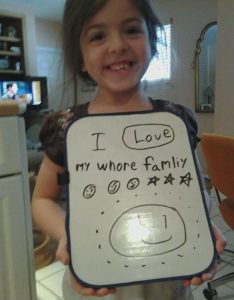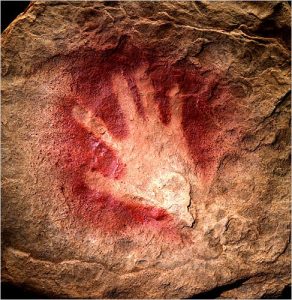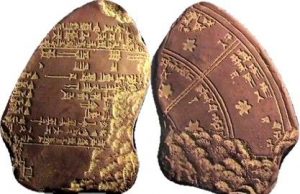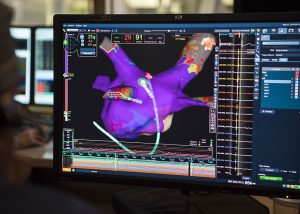Usually the student sentences which stand out for me are more than merely comical. I am  also less interested in those errors which some see as comic, especially in terms of laughing at the student’s expense. I am much more interested in sentences in which a student has inadvertently, or perhaps vertantly, stumbled upon a more compelling truth than the straitjacket of English grammar allows. Those sentences which have forced some slippage in the signifier, merely by wrenching the syntax or logic of the utterance until another meaning has been created.
also less interested in those errors which some see as comic, especially in terms of laughing at the student’s expense. I am much more interested in sentences in which a student has inadvertently, or perhaps vertantly, stumbled upon a more compelling truth than the straitjacket of English grammar allows. Those sentences which have forced some slippage in the signifier, merely by wrenching the syntax or logic of the utterance until another meaning has been created.
My latest discovery is a sentence which seems too simple to allow much flexibility. My student said, near the beginning of her essay’s first body paragraph, that “Our past has given us a lot of what our future is today.” The rest of the paper did little to ensure that what the past had delivered was clear, or what portions of our future they were referring to, but the sentence itself, with its three possible tenses, as well as the qualifier which limits what seem to be gifts from the past, is already exhilarating in its reach and challenge.
Perhaps in its most plebeian reading, the sentence merely states that our world today is the result of the past, although if that was all the sentence did it would be more than mundane. The student goes much further than that. She both points to our shared inheritance, “Our past,” and reads the benefits from our cultural tradition as a gift. Although at first sight she might seem to be disparaging the hard work of our thoughtful ancestors, who put together a system of laws, built massive monuments and structures, wrote classic literature and histories, and passed down their scientific advances, I don’t think that is
reading, the sentence merely states that our world today is the result of the past, although if that was all the sentence did it would be more than mundane. The student goes much further than that. She both points to our shared inheritance, “Our past,” and reads the benefits from our cultural tradition as a gift. Although at first sight she might seem to be disparaging the hard work of our thoughtful ancestors, who put together a system of laws, built massive monuments and structures, wrote classic literature and histories, and passed down their scientific advances, I don’t think that is either her intention, or, more importantly, the sentence’s resultant meaning. I think she is exclaiming about how we receive those accomplishments for free, merely for the price of museum admission, reading a book, or observing buildings around us. Her statement is one of gratitude, although she is not slavish in her appreciation.
either her intention, or, more importantly, the sentence’s resultant meaning. I think she is exclaiming about how we receive those accomplishments for free, merely for the price of museum admission, reading a book, or observing buildings around us. Her statement is one of gratitude, although she is not slavish in her appreciation.
If her sentence were to continue in that same vein, a euphoric paean about the past, it would be much less interesting, but she chooses instead to problematize the power the past has over our present accomplishments. The past has gifted us, she is willing to admit, but we have also made great strides on our own. That statement is difficult to support logically, since any accomplishment is necessarily in the past, but she questions whether the past has given us everything, or merely “a lot.”
Where the sentence really shines is where the gifts from the past are to be delivered. Those gifts have  been given to our future. She is not saying that those of us in the present will not enjoy them, but rather that the past has made a significant contribution to our future. The statement becomes problematic when we realize that her phrase the “future is today” is difficult to parse. This is not meant to be some slick advertising slogan, but the confusion of times destabilizes the entire sentence.
been given to our future. She is not saying that those of us in the present will not enjoy them, but rather that the past has made a significant contribution to our future. The statement becomes problematic when we realize that her phrase the “future is today” is difficult to parse. This is not meant to be some slick advertising slogan, but the confusion of times destabilizes the entire sentence.
Suddenly the gifts from the past have been delivered to both “our future” and our present, which are written as though they are one in the same. Even as my student suggests that Hegel is correct, and that we cannot grapple with the present except as a gestural statement about the past and a hope for a future which is forever out of reach, she is rejecting that notion.
Hearkening to a notion of the future which our shared past reached toward, my student has chosen instead to charge ahead. She demands that the past does not shape us entirely, as much as we are necessarily beholden to its gifts, and that instead we are living in some sort of continuous future-shocked present where we are free to make our own fate.
We are not free from the past, and we are not caught in a nostalgic present, but instead we are racing down the far side of the exponential curve of discovery and innovation. As if she were speaking for all youth, my student has declared her own manifesto; she would shove both the present and the past out of the way so that she can build our future.
we are not caught in a nostalgic present, but instead we are racing down the far side of the exponential curve of discovery and innovation. As if she were speaking for all youth, my student has declared her own manifesto; she would shove both the present and the past out of the way so that she can build our future.
In its willingness to discard portions of the past, and to embrace what may come, I think the sentence from my student shows, and I don’t mean this ironically, that the future is in good hands.
